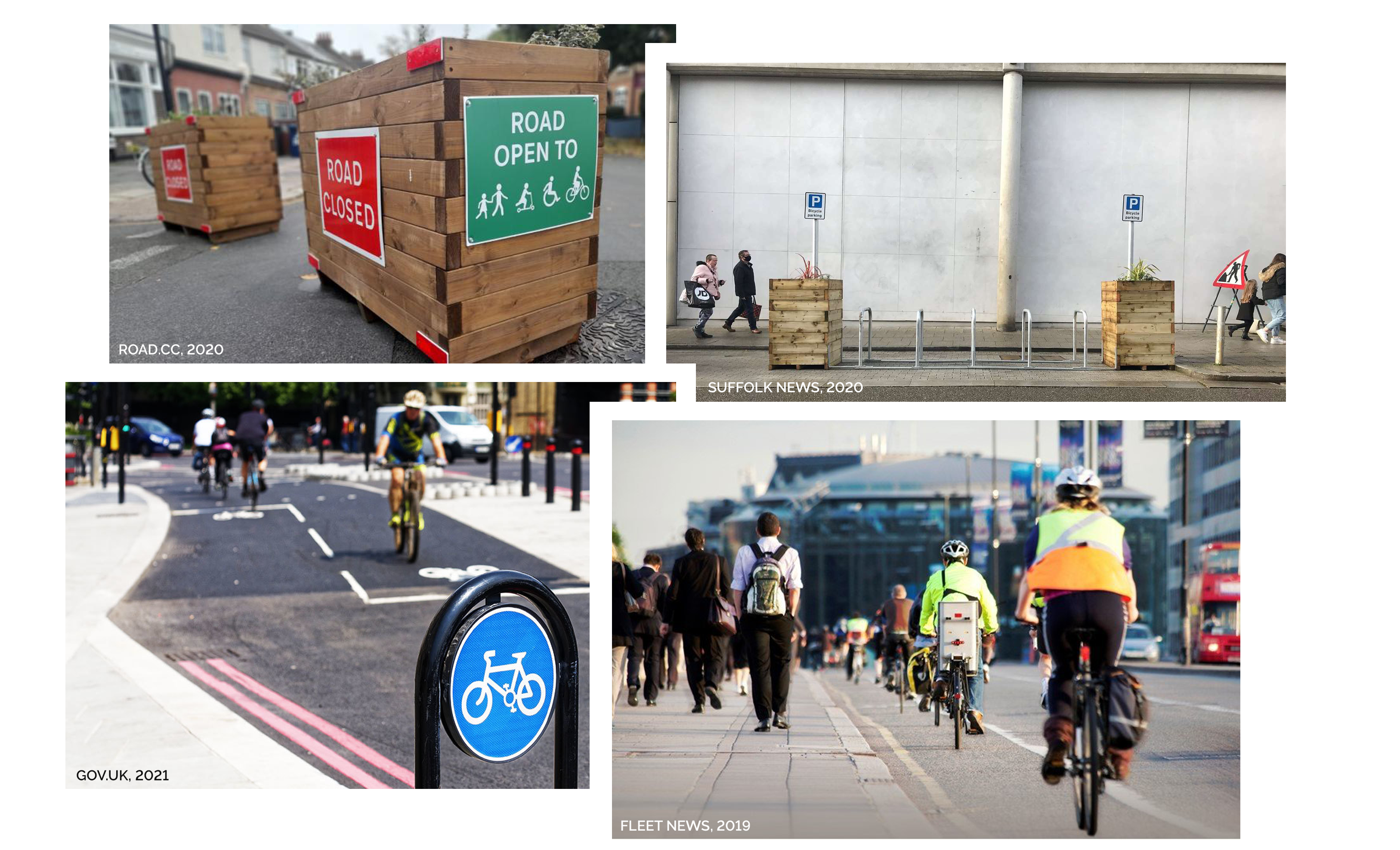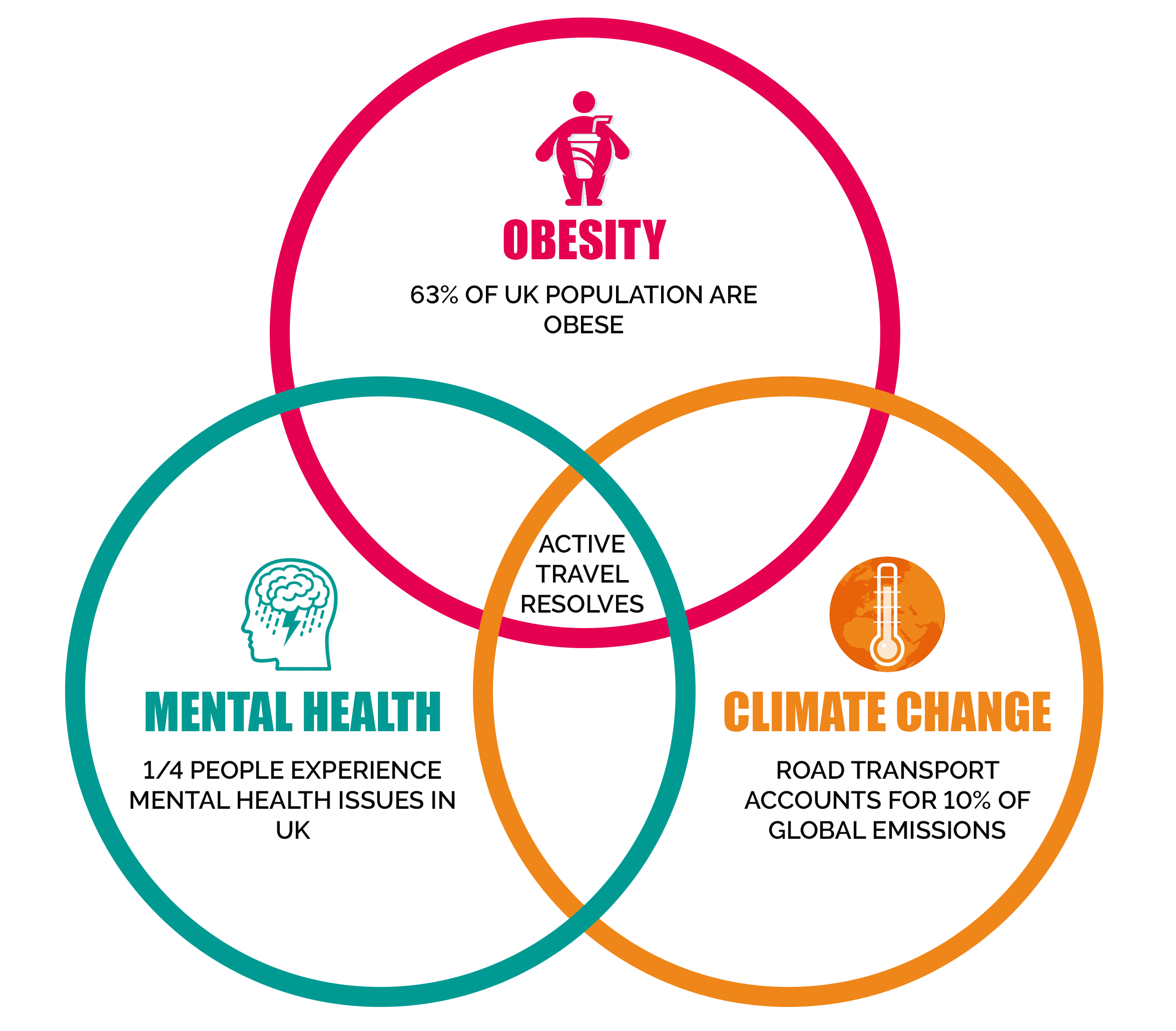Hi Tom, thanks for your post. I agree, active travel is crucial to tackling the 3 crises you have identified- obesity, climate change and mental health, and the Netherlands is a great example of a country which has successfully implemented active travel strategies.
I liked the fact you presented some statistics on obesity and mental health, and the quote you used for climate change was useful for wider context. The department of transport data you presented also gave some further detail on the importance of active travel. Your argument was clear, and the post was easy to read. There was a good selection of images which made the post engaging.
To improve the post, I would like to know what happened in the Netherlands in 1989. You say “The year 1989 saw a shift from vehicle centric cities to an urban form curated for the people”. What actually happened in 1989? Was it a government initiative, a social movement, or something else?
I also think it would have been useful to explain the Gear Change objectives in a bit more detail. The post doesn’t really make clear what the objectives of Gear change are, it simply sates “outlining “the bold vision for cycling and walking””.
Finally, I will question some of the vocabulary and grammar in the post. Where you say, “As a result, the UK was littered with ‘temporary’ pedestrianised zones that favoured liveability over the automobile (see figure 3).”, I wonder why you have used the word littered, and not something more positive, like improved, or even adorned? You have used the words afore mentioned, but I think the correct word is aforementioned. You have used the word Holland but the correct country name is The Netherlands. The phrase “Climate change has been a bane at the crux of our developing world for decades” could be reworded to, for example, “Climate change has been the inevitable consequence of rapid global development for decades”. Colons should be used where you have used semicolons.
I don’t want to propose a counterargument to your post because I totally agree we need to promote active travel as a solution to the problems you have outlined, however I found some useful resources on the evolution of cycling culture in The Netherlands which may provide some further insights into how we can embed these ideas more firmly in the UK.
https://urbancyclinginstitute.com/dutch-cycling-culture-and-its-utility-to-other-societies-evolutionary-history-versus-current-conditions/
and
https://urbancyclinginstitute.com/moving-towards-uk-culture-shift/
Thanks again for your post, it was thought provoking and engaging.
A Nation of Luddites: Active Travel as a UK Crises Solution
A Nation of Luddites: Active Travel as a UK Crises Solution
We are experiencing the aftermath of the modernist era. The complex, concrete networks we call roads comprise the cities we experience today. Cities were built around automobiles. The urban thread is therefore largely disconnected from human form, scale and need.
The craze of modernism infected planners, architects and urban designers alike, making them obsessed with the development of vehicle centric cities. Throughout this obsession, rudimental yet integral attributes that humanised our cities have been lost or forgotten. Inevitably, the lost and forgotten are slowly revealing themselves – often as problems. Now is an appropriate time to refer to the age old proverb – slow and steady wins the race. It comes as no surprise then that the UK finds itself amidst three national crises (see figure 1).
The Obesity Crisis
63% of the UK population are overweight or obese (NHS, 2019). This is a staggering figure and its resolve is a public health imperative. However, a solution to such wide spread tribulation will be complex. It must attend to the younger generation – with 1 in 3 children being classed as overweight by the end of primary school – all the way to our senior citizens. Concern for the impending consequences of our plump populace is growing.
The Mental Health Crisis
The 21st century has seen a huge shift in the global attitude towards mental health. We are now living in a world where mind really matters. Despite our recent efforts to catapult mental health to the front line of public health priority we still have a long way to go. The mental health charity ‘Mind UK’ (2017) project that 1 in 4 people experience mental health problems in the UK each year, with a disconcerting 1 in 15 Britons attempting suicide in their lifetimes. As I said, we still have a long way to go.
The Climate Change Crisis
Climate change has been a bane at the crux of our developing world for decades. Foreseeably, ‘2020 was a notable year for the UK with records broken for daily rainfall and monthly sunshine hours’ and ‘significant weather extremes including severe flooding and heatwaves’ (Royal Meteorological Society, 2021). As Greta Thunberg exclaimed at the R20 Austrian World Summit, Vienna (2019),
“This is the biggest crisis humanity has ever faced.”
Figure 1: UK crises Venn diagram.
Active Travel as a UK Crises Solution
With the three previous crises alarmingly prevalent in the UK, many different schemes have been manufactured to combat and eventually neutralise each of them. One in particular has the ability to tackle all three. ‘Gear Change’ is an official UK transport initiative published in 2020 outlining ‘the bold vision for cycling and walking’. After all, the National Travel Survey (2020) revealed that 59% of all car journeys made in the UK were under 5 miles (Department for Transport, 2021) – is this not a squander of fossil fuels? If the UK populous adhere to the gear change objectives and active travel is at the forefront of UK transport, substantial progress will be made in the UK’s fight against obesity, mental health and climate change. So how can simply walking and cycling improve such drastic issues?
It is widely known that physical activity significantly reduces the risk of not only obesity, but multiple health issues ensued from being overweight. Hence, exercise can reduce the risk of type 2 diabetes by 40% and cardiovascular disease by 35% (Department for Transport, 2020).
Mental health can also be improved. Anxiety, depression and other disorders are strongly correlated with a lack of physical activity. As little as 20 minutes of exercise per day can reduce depression by up to 31% (Department for Transport, 2020).
Concerning climate change, the COP26 held in Glasgow (2021) revealed that road transport accounts for 10% of global emissions, with emissions rising faster than any other sector (United Nations, 2021). Thus, a shift from vehicular travel to active travel is a prerequisite to restored planetary health.
Holland: an Active Travel Exemplar
As outsiders, we often view Holland as a nation of cyclists. However, it was only in the late 20th century that the Dutch became two wheeled tyrants. The year 1989 saw a shift from vehicle centric cities to an urban form curated for the people, necessitated by increased death rates and public health decline. Nowadays, there is in excess of 35,000km of dedicated cycle lanes facilitating over 25% of all trips made in Holland, compared to a mere 2% in the UK (National Institute for Public Health and the Environment, 2018). There are literally more bikes than people in Holland.
It comes as no surprise then that when compared with Holland, the UK falls at every hurdle. With their obesity rates lower and quality of life higher, I think we can learn from our active counterparts.

Figure 2: Worlds first suspended bridge for bicycles in Holland.
Covid-19: an Unlikely Catalyst for Urban Regeneration
‘Tranche 2’; an emergency active travel fund of £44.5 million. The UK government used this to improve and expand the national cycle network as a response to the pandemic. As a result, the UK was littered with ‘temporary’ pedestrianised zones that favoured liveability over the automobile (see figure 3). But why temporary?
Transforming these make-shift, Dutch-esque interventions into an exercise encouraging and planet protecting network of permanence is crucial. It is crucial not just because of the afore mentioned crises we face as a nation, but because of the multitude of other benefits such a system would generate.
Something must now be said in the pursuit of clarity. I do not propose a nation of de-motorised luddites. What I propose is that we capitalise on the unlikely opportunity that has arisen from COVID-19, realize the ‘gear-change’ modus operandi, and embark on a mission towards an active nation and sustainable planet.

Figure 3: Temporary pedestrianisation in the UK as a result of Tranche 2.
List of Figures
Figure 1: UK crises Venn diagram.
Figure 2: Worlds first suspended bridge for bicycles in Holland.
Figure 3: Temporary pedestrianisation in the UK as a result of Tranche 2.
References
Department for Transport (2020). Gear Change; a Bold Vision for Cycling and Walking. [Accessed 03 November 2021]. Available from; https://assets.publishing.service.gov.uk/government/uploads/system/uploads/attachment_data/file/904146/gear-change-a-bold-vision-for-cycling-and-walking.pdf
Department for Transport (2021). National Travel Survey: 2020. [Accessed 04 November 2021]. Available from; https://www.gov.uk/government/statistics/national-travel-survey-2020/national-travel-survey-2020
Mind (2017). Mental Health Facts and Statistics. [Accessed 04 November 2021]. Available from; https://nclurbandesign.org/wp-admin/post.php?post=9717&action=edit
National Institute for Public Health and the Environment (2018). Cycling in the Netherlands. [Accessed 03 November 2021]. Available from; https://crowplatform.com/wp-content/uploads/Cycling-in-the-netherlands.pdf
NHS (2019). Health Survey for England 2018. [Accessed 04 November 2021]. Available from; https://digital.nhs.uk/data-and-information/publications/statistical/health-survey-for-england/2018#
Royal Meteorological Society (2021). Climate change continues to be evident across UK; State of the UK Climate 2020 report is published. [Accessed 04 November 2021]. Available from; https://www.rmets.org/news/climate-change-continues-be-evident-across-uk
Thunberg, G. (2019). R20 Austrian World Summit. [Accessed 03 November 2021].
United Nations (20210. UN Climate Change Conference UK 2021. [Accessed 05 November 2021]. Available from; https://ukcop26.org/





Hi Tom, thanks for your post. I agree, active travel is crucial to tackling the 3 crises you have identified- obesity, climate change and mental health, and the Netherlands is a great example of a country which has successfully implemented active travel strategies.
I liked the fact you presented some statistics on obesity and mental health, and the quote you used for climate change was useful for wider context. The department of transport data you presented also gave some further detail on the importance of active travel. Your argument was clear, and the post was easy to read. There was a good selection of images which made the post engaging.
To improve the post, I would like to know what happened in the Netherlands in 1989. You say “The year 1989 saw a shift from vehicle centric cities to an urban form curated for the people”. What actually happened in 1989? Was it a government initiative, a social movement, or something else?
I also think it would have been useful to explain the Gear Change objectives in a bit more detail. The post doesn’t really make clear what the objectives of Gear change are, it simply sates “outlining “the bold vision for cycling and walking””.
Finally, I will question some of the vocabulary and grammar in the post. Where you say, “As a result, the UK was littered with ‘temporary’ pedestrianised zones that favoured liveability over the automobile (see figure 3).”, I wonder why you have used the word littered, and not something more positive, like improved, or even adorned? You have used the words afore mentioned, but I think the correct word is aforementioned. You have used the word Holland but the correct country name is The Netherlands. The phrase “Climate change has been a bane at the crux of our developing world for decades” could be reworded to, for example, “Climate change has been the inevitable consequence of rapid global development for decades”. Colons should be used where you have used semicolons.
I don’t want to propose a counterargument to your post because I totally agree we need to promote active travel as a solution to the problems you have outlined, however I found some useful resources on the evolution of cycling culture in The Netherlands which may provide some further insights into how we can embed these ideas more firmly in the UK.
https://urbancyclinginstitute.com/dutch-cycling-culture-and-its-utility-to-other-societies-evolutionary-history-versus-current-conditions/
and
https://urbancyclinginstitute.com/moving-towards-uk-culture-shift/
Thanks again for your post, it was thought provoking and engaging.